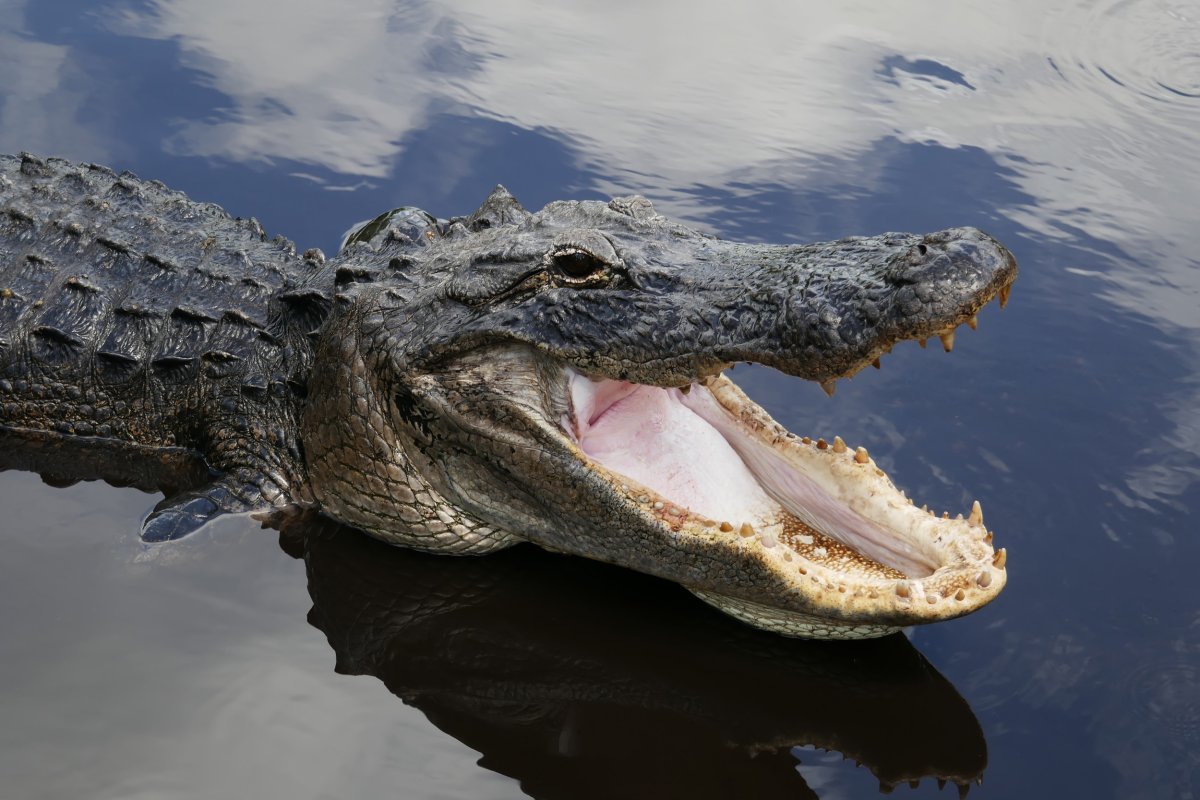An Alabama local spotted a very unusual seaside sight last Sunday when an alligator emerged from the waves onto the shores of Dauphin Island.
Matt Harvill posted pictures of the unexpected encounter that took place on Sunday, May 7, on the Gulf of Mexico beach on Facebook.
"The things you never think you'll see. First time seeing a gator on Dauphin Island. Heading towards the west end, be careful y'all," Harvill captioned the post.
While alligators don't usually venture into saltwater, they have occasionally been seen in the sea and on beaches.

Alligators are usually found in freshwater rivers and lakes, and can only tolerate saltwater for a brief period of time, according to the National Oceanic and Atmospheric Association.
Alligators are found across the U.S. South, ranging from Virginia and North Carolina along the Gulf Coast to Central America. They can reach up to 19 feet long and weigh as much as 900 pounds, the Alabama Department of Conservation and Natural Resources (DCNR) said on the Outdoor Alabama website.
While Florida has the largest number of alligators of any U.S. state, there is an estimated population of around 70,000 in Alabama.
Alligators do not have salt glands, a small organ that allows other reptiles such as crocodiles to tolerate brackish and oceanic waters by removing salt from their bodies. Instead, for short stints in salty water, alligators can shut their nostrils and close off their throat, preventing water from entering.
The Alabama DCNR advises anyone near or in bodies of water to always be alert to the potential presence of an alligator.
"When in or near fresh or brackish water, always be aware of possible encounters with alligators. Harmful encounters occur when people do not pay attention to their surroundings," the DCNR wrote on its website.
"Alligators are most active between dusk and dawn. Avoid swimming at night, outside of posted swimming areas, or in waters that might be inhabited by alligators."
Additionally, it warns against ever feeding alligators, or going anywhere near them. Killing, harassing, or possessing an alligator is prohibited under Alabama state law.
Do you have an animal or nature story to share with Newsweek? Do you have a question about alligators? Let us know via science@newsweek.com.
Uncommon Knowledge
Newsweek is committed to challenging conventional wisdom and finding connections in the search for common ground.
Newsweek is committed to challenging conventional wisdom and finding connections in the search for common ground.
About the writer
Jess Thomson is a Newsweek Science Reporter based in London UK. Her focus is reporting on science, technology and healthcare. ... Read more





